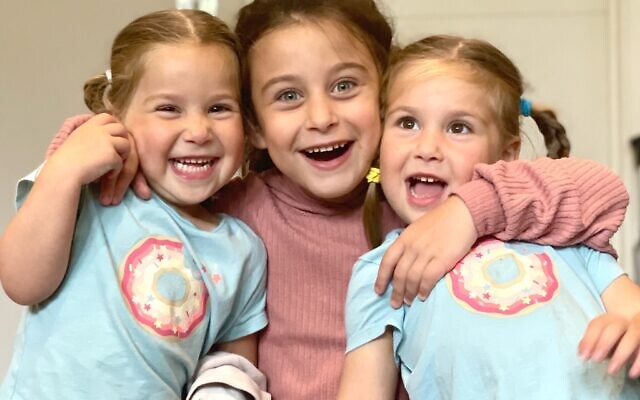Charity increases number of Jewish genetic disorders it screens from nine to 47
JNetics will now offer testing for conditions prevalent among people from Sephardi and Mizrahi communities for the very first time
Jack Mendel is the former Online Editor at the Jewish News.
A leading charity researching Jewish genetic disorders (JDGs) has expanded the number of conditions it tests from nine to 47.
Jnetics’ will for the first time offer testing for 15 disorders prevalent in Sephardi and Mizrahi communities, and 28 among Ashkenazim. Four conditions are common among people from both communities or who have mixed heritage.
It is thought up to one-in-five Jews of Ashkenazi origin are healthy carriers of a severe recessive Jewish genetic disorder, the charity says. Carriers are usually unaffected by JDGs, but if they have a child with another carrier, there is a one in four chance the child will inherit it. Screening identifies those at risk of passing on one or more disorders.
Jnetics CEO Nicole Gordon said: “The grouping has been increased to include further conditions prevalent in the Ashkenazi community, and for the first time we will include conditions prevalent in the Sephardi and Mizrahi communities. We are encouraging any young Jewish adults with at least one Jewish grandparent to come forward and be tested.
“Currently, so many health issues are beyond our control. Screening for Jewish genetic disorders and managing the risk of having a child with one of the severe life-threatening and or life-shortening disorders we screen for is not.”
Among the most prevalent disorders for Ashkenazi Jews are Canavan disease and familial dysautonomia, which affect the nervous system, and cystic fibrosis.
Conditions impacting Sephardim more actually include acute infantile liver failure, Costeff optic atrophy syndrome, which is a neurological disorder, and Glycogen storage disease type III, which harms the liver, muscles and tissues.
Lauren and Richard Kayser, who are both Tay-Sachs carriers, underwent Jnetics screening before their first daughter was born – she was unaffected by the condition. They had a type of IVF treatment for their subsequent two girls and are encouraging others to be screened, to “avoid finding yourselves in the traumatic situation we had to experience”.

Thank you for helping to make Jewish News the leading source of news and opinion for the UK Jewish community. Today we're asking for your invaluable help to continue putting our community first in everything we do.
For as little as £5 a month you can help sustain the vital work we do in celebrating and standing up for Jewish life in Britain.
Jewish News holds our community together and keeps us connected. Like a synagogue, it’s where people turn to feel part of something bigger. It also proudly shows the rest of Britain the vibrancy and rich culture of modern Jewish life.
You can make a quick and easy one-off or monthly contribution of £5, £10, £20 or any other sum you’re comfortable with.
100% of your donation will help us continue celebrating our community, in all its dynamic diversity...
Engaging
Being a community platform means so much more than producing a newspaper and website. One of our proudest roles is media partnering with our invaluable charities to amplify the outstanding work they do to help us all.
Celebrating
There’s no shortage of oys in the world but Jewish News takes every opportunity to celebrate the joys too, through projects like Night of Heroes, 40 Under 40 and other compelling countdowns that make the community kvell with pride.
Pioneering
In the first collaboration between media outlets from different faiths, Jewish News worked with British Muslim TV and Church Times to produce a list of young activists leading the way on interfaith understanding.
Campaigning
Royal Mail issued a stamp honouring Holocaust hero Sir Nicholas Winton after a Jewish News campaign attracted more than 100,000 backers. Jewish Newsalso produces special editions of the paper highlighting pressing issues including mental health and Holocaust remembrance.
Easy access
In an age when news is readily accessible, Jewish News provides high-quality content free online and offline, removing any financial barriers to connecting people.
Voice of our community to wider society
The Jewish News team regularly appears on TV, radio and on the pages of the national press to comment on stories about the Jewish community. Easy access to the paper on the streets of London also means Jewish News provides an invaluable window into the community for the country at large.
We hope you agree all this is worth preserving.






















